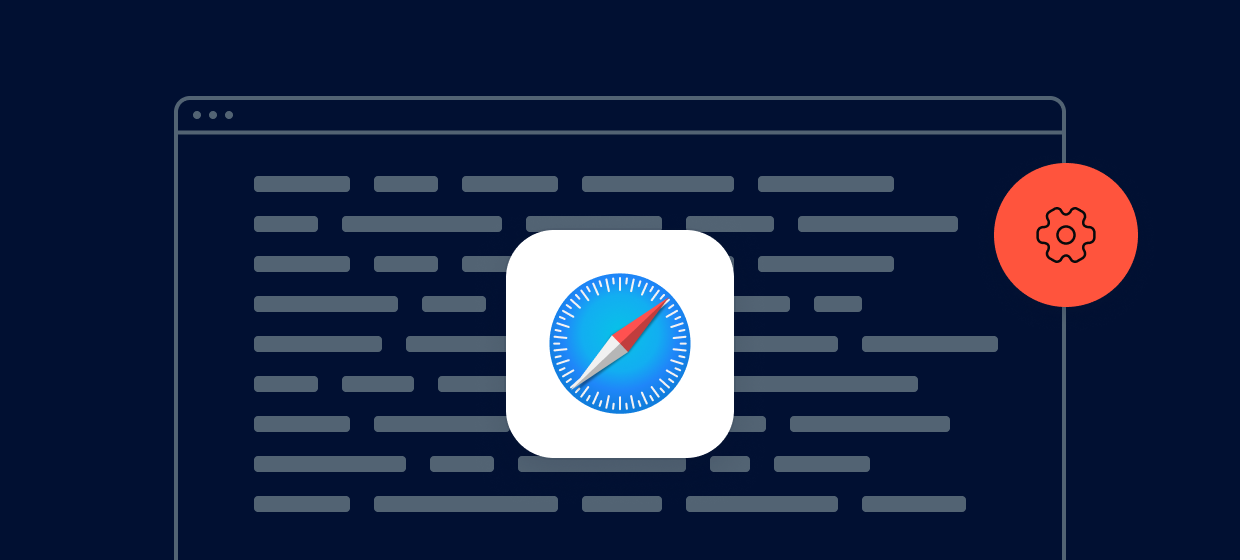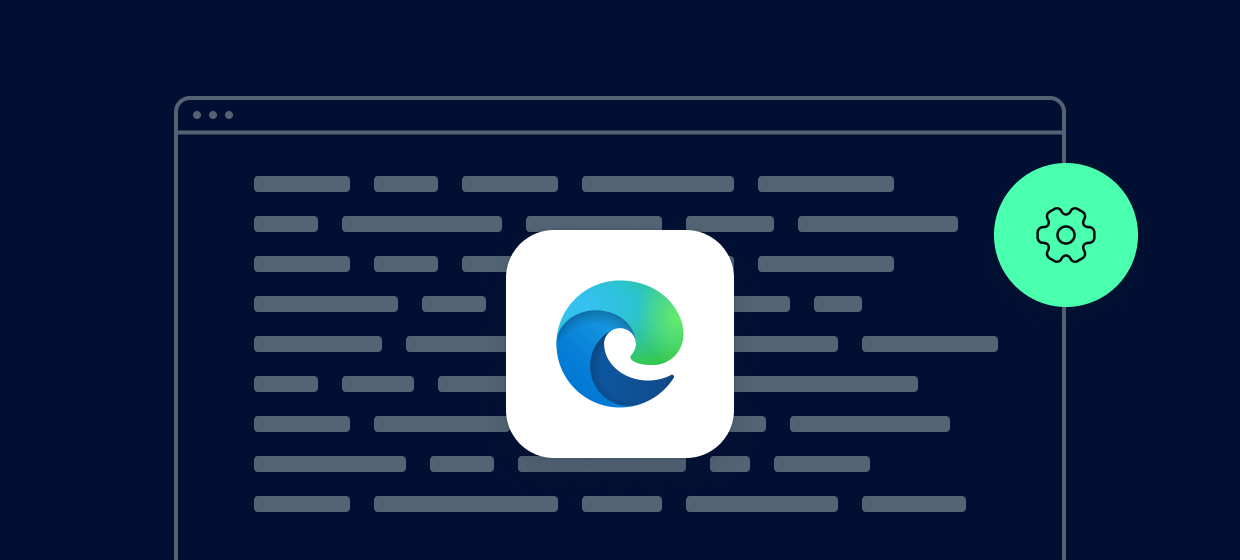Did you know that a single proxy provider can offer access to over 300,000 IP addresses in 29 different countries?
Most of us feel overwhelmed by technical terms and endless options while figuring out proxy purchases. The right proxy selection is vital to your success if you need to bypass geo-restrictions, protect your online privacy, or gather data for business intelligence.
Different proxy services offer unique capabilities. Some automatically rotate your IP address to improve anonymity. Others can process massive data loads of up to 25 petabytes per month. The real question is - which one matches your specific needs?
This beginner-friendly piece will guide you through each step of purchasing proxies. You'll get straightforward advice that cuts through the confusion. We'll help you identify your exact requirements and set up your first proxy connection with ease.
Step 1: Identify Why You Need a Proxy
You need to know exactly why you want a proxy before buying one. The right type of proxy and your budget depend on your specific needs. Let's get into the three main reasons people buy proxies.
Bypass geo-blocks or content filters
Geo-restrictions block your access to online content based on where you are. These blocks affect streaming services, news websites, e-commerce platforms, and other online services. Some regions can't access certain content because of licensing agreements or regulatory constraints.
A proxy server acts as an intermediary between your device and the internet. It masks your IP address with its own. Your browsing appears to come from a different location, which helps you get past website geo-restrictions. To cite an instance, a proxy helps you watch your favorite streaming content when you're traveling abroad.
Your proxy can also help you get around content filters or firewalls set up by organizations, schools, or governments. Research shows 86% of internet users have tried to mask their identity online. This shows why more people just need unrestricted internet access.
Improve anonymity and security
Proxies hide your real IP address to give you anonymity. Websites, advertisers, and potential attackers can't easily track what you do online. This stops unauthorized parties from monitoring your behavior or collecting your personal information without permission.
Your security gets better with proxies beyond just privacy. A proxy server can encrypt your web requests to keep sensitive information safe. It also filters out malicious content and blocks known malware sites from reaching your network.
High anonymity proxies protect you even more by erasing your information before connecting to target sites. This advanced protection is a great way to get better security, especially when you manage multiple online accounts or do sensitive research—often marketed as elite proxies.
Automate data collection tasks
Proxies are great tools for various data collection methods, including:
- Web scraping and data mining
- Social media data collection
- Competitor analysis
- API integration
- Market research
Websites often detect and block automated data collection, especially from data center IP addresses. Residential proxies make your data scraping look like normal user traffic from different locations. This reduces your chances of getting blocked. For heavy bot-protected sites, specialized captcha proxies can help maintain higher success rates.
Rotating proxies switch IP addresses automatically after each request or at set times. They work best for large-scale data mining tasks. This rotation keeps you anonymous, helps you avoid rate limits, and lowers your risk of getting banned during data collection.
Know which of these needs matters most to you before buying proxies. This understanding will help guide your choice in the next steps.
Step 2: Choose the Right Type of Proxy
Your choice of proxy type plays a vital role in the success of your online activities. Different proxy categories serve unique purposes that depend on their setup and features.
When to use residential proxies
Residential proxies work through IP addresses that Internet Service Providers give to actual households. These proxies look like real users. Websites are substantially less likely to block these IPs because they come from genuine consumer connections. Their authentic nature makes them ideal for accessing highly protected websites with advanced anti-bot systems. You can use residential proxies to verify ads, analyze competitors, and check local search results effectively. If you need persistent sessions (sticking to the same IP), consider static residential proxies for long-lived logins and account management at scale.
When to use datacenter proxies
Professional server facilities power datacenter proxies instead of residential networks. These proxies give you superior speed and reliability at lower prices. They work great for projects that need quick responses and high performance. Market research, SEO tracking, and email security benefit from these proxies. Websites with anti-bot systems can spot them more easily due to their artificial nature. You should think about datacenter proxies if speed matters more than perfect anonymity.
Need lower cost and higher scale? Shared datacenter proxies are ideal for bulk crawling where exclusivity isn’t critical. Need one-user-per-IP isolation? Opt for dedicated proxies (often called private proxies) to minimize noise from other users.
When to use mobile proxies
Mobile proxies assign IPs through cellular networks like 3G, 4G, or 5G. They create an almost unbreakable shield against detection. Mobile networks' CGNAT system assigns one public IP to thousands of devices at once. This setup makes it extremely hard to distinguish between actual mobile users and proxy traffic. These proxies excel at social media management, mobile app testing, and location-based research—and are popular for limited-edition drops using sneaker proxies. Mobile proxies cost the most, but they provide unmatched trust and block resistance.
Step 3: Evaluate and Compare Proxy Providers
The proxy market has many providers who make bold claims about their services. It's hard to find trustworthy providers because of misleading marketing. Many of them exaggerate their IP pool sizes or use unethical practices.
How to check provider reputation
You should start by researching proxy providers through authentic user reviews and testimonials. Trustworthy providers get their IP addresses ethically, especially for residential and mobile proxies. They communicate clearly about proxy acquisition methods and maintain strict acceptable use policies.
The provider's business legitimacy matters - a reputable company takes accountability for any issues you might face. You should also check if they screen their customers and monitor usage to prevent network abuse.
Understanding pricing models
Proxy services usually come with two main pricing structures: pay-per-GB and pay-per-IP. The pay-per-GB model bases charges on data transferred, making it perfect for data-heavy tasks like web scraping (typical for paid proxy servers). The pay-per-IP model charges a fixed fee for dedicated IP addresses, which gives predictable costs for steady usage.
Prices vary substantially based on:
- Proxy type (residential costs more than datacenter)
- Server's geographic location
- Anonymity level provided
- Extra features and support offered
Volume buyers should look for bulk proxies discounts; if speed is mission-critical, shortlist providers that advertise the fastest proxies under your target regions and workloads.
Most providers now have pay-as-you-go options starting at $7-10 per GB, with prices dropping for volume commitments.
Features to look for in a proxy service
Price isn't everything. Here are other vital features to assess:
Reliability is a vital factor—look for providers with at least 99.9% uptime guarantees to ensure steady access. The provider's customer support should be available 24/7 through multiple channels. Some premium providers even offer dedicated account managers.
User-friendly dashboards, detailed analytics, and API access for programmatic control are great management tools to have. Geo-targeting features help if you need to appear from specific locations.
Ready to get started with proxies? Visit Proxy-Cheap to get reliable proxy solutions at competitive prices.
The best providers also offer advanced features like automatic IP rotation, session persistence options, and ways to integrate with your existing tools.
Step 4: Purchase and Set Up Your Proxy
You've picked your proxy provider, and now it's time to buy and set up your new proxy. This final step will turn your research into a working privacy solution.
How to buy a proxy from a provider
The purchase process starts after you've chosen a provider. Here's what you need to do:
- Sign up for an account with your chosen proxy provider using simple details like your email address and password
- Look through the available proxy plans and pick one that fits your budget and needs—providers usually offer monthly, quarterly, or yearly subscriptions
- Take time to read the terms of service to understand privacy policies and usage guidelines
- Pick your payment method—most providers take credit cards (buy proxy with credit card), and many also support PayPal (buy proxy with PayPal), Google Pay, Apple Pay, or cryptocurrencies.
Proxy-Cheap offers a quick way to purchase and set up the proxies you need.
Setting up your proxy on a device
Your proxy details will arrive after payment confirmation. These include:
- IP address and port number
- Authentication credentials (username/password if required)
- Configuration instructions
The setup starts with configuring your device's network settings. Windows users should go to Settings > Network & Internet > Proxy. Mac users need to open System Preferences > Network > Advanced > Proxies.
You can set up your proxy using one of these three methods:
- Automatically: Windows detects proxy settings on its own
- Using a setup script: Put in the script address from your organization
- Manually: Type the proxy server name/IP address and port number yourself
Testing your proxy connection
Your proxy needs testing before you use it for important work. The quickest way is to use your provider's built-in proxy checker.
You can also visit WhatIsMyIP.com to make sure your displayed IP address matches your proxy's IP instead of your actual one.
Check these things during testing:
- Connection stability and speed
- Your real location stays hidden
- Target websites work properly
Something wrong? Double-check your settings or reach out to your provider's support team.
Conclusion
Choosing the right proxy depends on understanding your needs and finding a solution that matches them. You need to first identify why you need a proxy - it could be to bypass geo-restrictions, enhance security, or collect data. This will help you decide which type works best for you.
Residential proxies give you authenticity and lower chances of getting blocked, which makes them perfect for accessing protected websites. Datacenter proxies are fast and reliable at a lower cost, but they're easier to detect. Mobile proxies give you unmatched anonymity through cellular networks, though they cost more.
A full evaluation of potential providers is crucial before you buy. Look at their reputation, pricing, and extras like uptime guarantees and customer support. Most reliable providers now give you flexible payment options and user-friendly tools to make things easier.
Setting up your proxy is simple once you pick a provider. Just create an account, choose a plan, and set up your device using their instructions. Test your connection to make sure everything works before starting your tasks.
The proxy market keeps growing with new technologies and solutions appearing all the time. Let your specific needs guide your choice instead of going for the most popular or expensive option. The right proxy will combine smoothly with your workflow and give you exactly the anonymity and functionality you need.
This piece should have made buying proxies clearer for you. You now have the knowledge to explore the proxy marketplace with confidence and pick a solution that fits your online activities and protection needs perfectly.
FAQs
What are the main types of proxies available for purchase?
There are three main types of proxies: residential, datacenter, and mobile. Residential proxies use IP addresses from real households, datacenter proxies operate from professional server facilities, and mobile proxies assign IP addresses through cellular networks.
How do I choose the right proxy for my needs?
To choose the right proxy, first identify your specific requirements. Consider factors such as the level of anonymity needed, the speed required, and the type of tasks you'll be performing. For example, residential proxies are best for accessing protected websites, while datacenter proxies offer superior speed for data collection tasks.
What should I look for when evaluating proxy providers?
When evaluating proxy providers, check their reputation through user reviews, examine their pricing models, and look for features such as uptime guarantees, customer support availability, and management tools. Also, ensure they ethically source their IP addresses and have clear acceptable use policies.
How much do proxies typically cost?
Proxy costs vary widely based on type, location, and features. Many providers offer pay-as-you-go options starting around $7-10 per GB, with prices decreasing for larger volume commitments. Residential proxies tend to be more expensive than datacenter proxies, while mobile proxies are usually the most costly option.
How do I set up and test a proxy after purchase?
After purchasing a proxy, you'll receive details like IP address, port number, and authentication credentials. Configure your device's network settings accordingly. Then, test your proxy connection by using your provider's built-in checker or visiting an IP checking website to ensure your real IP is masked and the connection is stable.
FAQs
What is Proxy-Cheap?
Proxy-Cheap is a proxy service provider for online anonymity and security.
What type of proxy solutions does Proxy-Cheap offer?
Proxy-Cheap offers residential, datacenter proxy solutions, and mobile proxy.
What IP versions does Proxy-Cheap support?
Proxy-Cheap supports IPv4 and IPv6 proxy versions.
What are the targeting options for our proxies?
Proxy-Cheap offers targeting options for specific countries.
What proxy connection protocols are supported?
Proxy-Cheap supports HTTP, HTTPS, and SOCKS proxy connection protocols.
Can I renew expired proxies?
Yes, you can renew expired proxies with Proxy-Cheap.
Can I choose proxy server locations?
Proxy-Cheap allows you to choose proxy server locations.
How easy is it to set up and manage proxies from Proxy Cheap?
Setting up and managing proxies with Proxy-Cheap is user-friendly.
How many concurrent sessions (threads) can be used?
The number of concurrent sessions varies based on your plan.
What are proxy authentication methods?
Proxy-Cheap offers various proxy authentication methods for user security.





















.svg)